 Sarah Resnick
Sarah Resnick
Driver vs. Johansson: Noah Baumbach’s new film tracks a divorce.
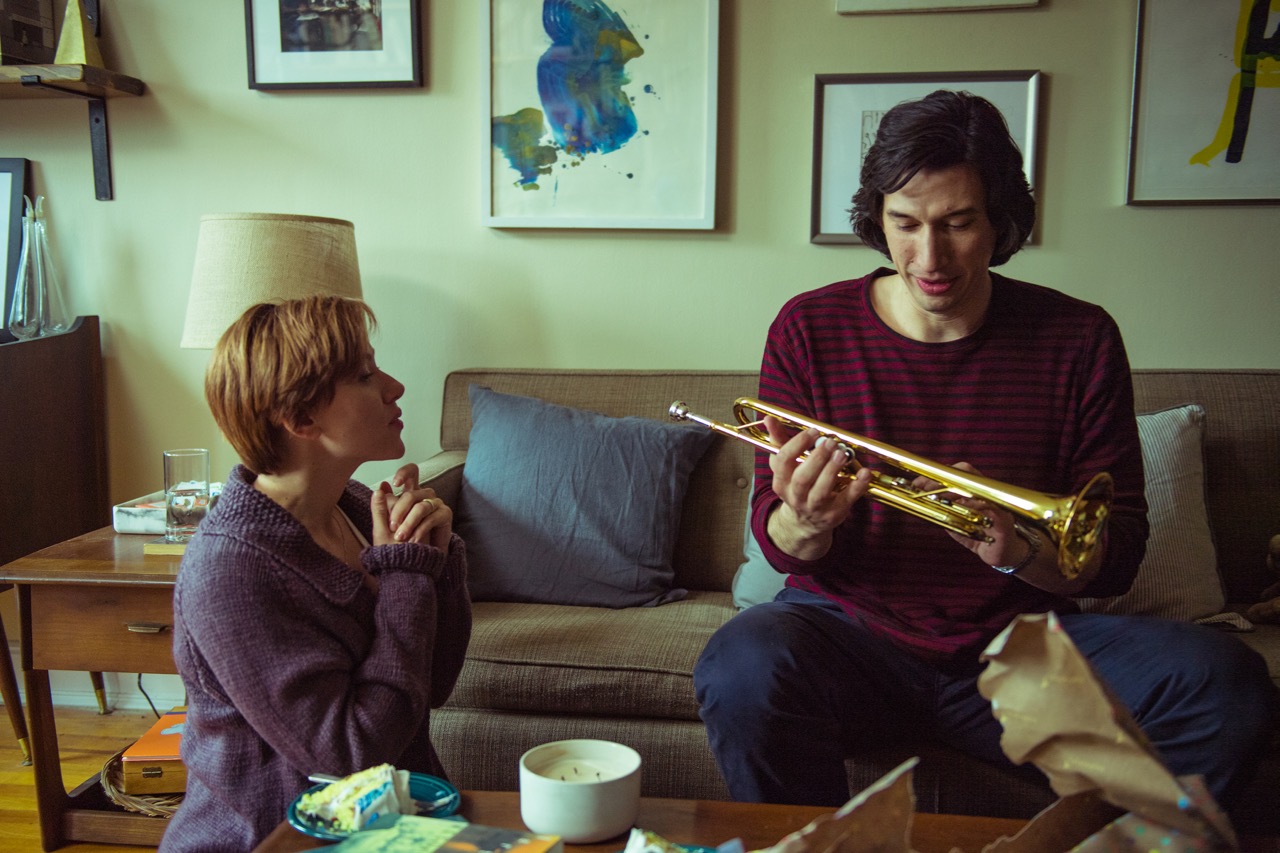
Scarlett Johansson as Nicole and Adam Driver as Charlie in Marriage Story. Image courtesy Netflix. Photo: Wilson Webb.
Marriage Story, written and directed by Noah Baumbach, opens November 6, 2019, in select theaters; available on Netflix
December 6, 2019
• • •
Marriage Story, the new movie by Noah Baumbach, begins with two successive montages, scenes of a happy couple with child. The first centers on Nicole (Scarlett Johansson). Nicole is “brave,” we learn through a voiceover. She is an “infectious” dancer and a “mother who plays.” She knows how to cut hair and is “great” at giving gifts. The second centers on Charlie (Adam Driver). Charlie is “incredibly neat” (as in tidy). He is “self-sufficient” and “cries easily in movies.” He “loves being a dad” and “never looks embarrassing, which is hard for a man.” Both are “very competitive.” Each voiceover—the first provided by Charlie, the second by Nicole—appears an expression of adoration, one spouse seen through the devoted gaze of another. But when the montages close, the film veers abruptly. The afternoons spent playing Monopoly and rolling around in the grass: these happened in the past. Nicole and Charlie are separating, their apparent love letters to the other an exercise assigned by a therapist, a means to temper their animus, restore monsters into humans.
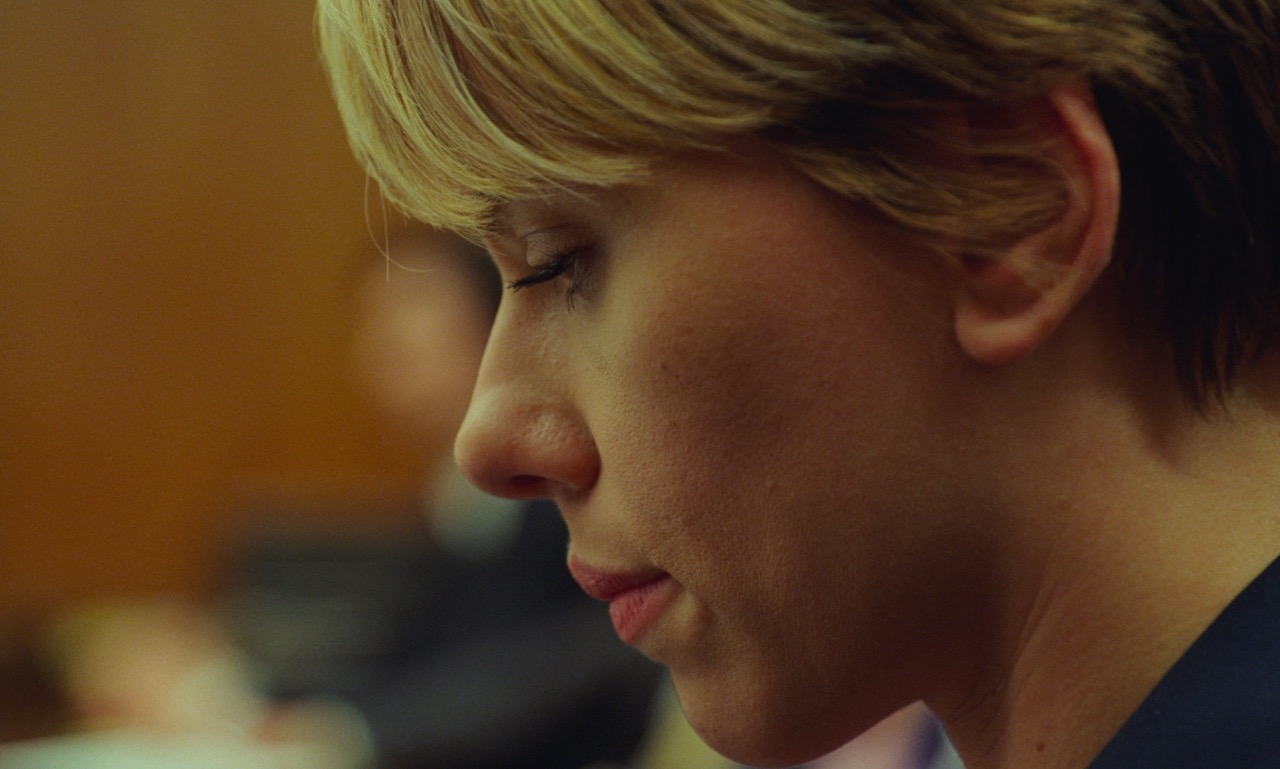
Scarlett Johansson as Nicole in Marriage Story. Image courtesy Netflix.
Opening with these twin characterizations, set to romantic chamber music composed by Randy Newman, is a bit cute if arguably appropriate for Baumbach, whose films are propelled by characters—often sourced from autobiographical experiences—rather than concepts: it’s as if he is mirroring his own writing process. (Baumbach has discussed in interviews how, when writing a screenplay, he lets the characters drive the story.) To date, these individuals have been representatives of the white, college-educated, East Coast creative set. They tend to be articulate, wily, awkward, and more often than not preoccupied by a fear that their opportunity to make things and be recognized for them is about to expire or, worse, be snatched up and successfully realized by someone younger. They self-sabotage and behave in ways that are unreasonable, albeit not unrecognizable.
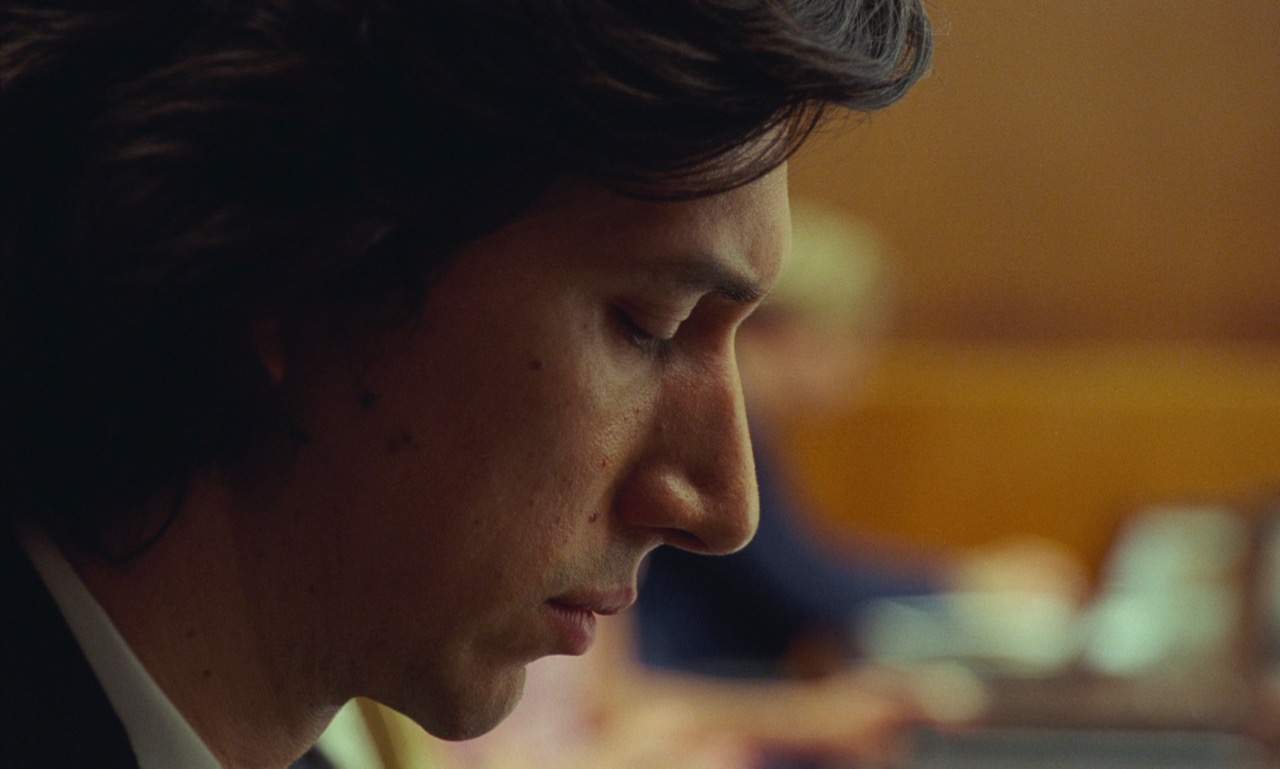
Adam Driver as Charlie in Marriage Story. Image courtesy Netflix.
Charlie and Nicole are in this way familiar Baumbach protagonists. They are both artists. He is the director of an experimental theater company and was recently granted his first Broadway show. She is his star actor, talented but hamstrung, having retired her own ambitions, a career in the studios of Hollywood, to support his on the stages of New York. His confidence is as outsize as her resentment, which at the film’s start is a smoldering fire on the verge of flashover. But they have an eight-year-old son, Henry (Azhy Robertson), the object of their devotion, and, wary of exposing him to a savage War of the Roses–style divorce, they assure the people around them, as well as each other, that they will uncouple amicably, working out the terms of their separation without involving attorneys.
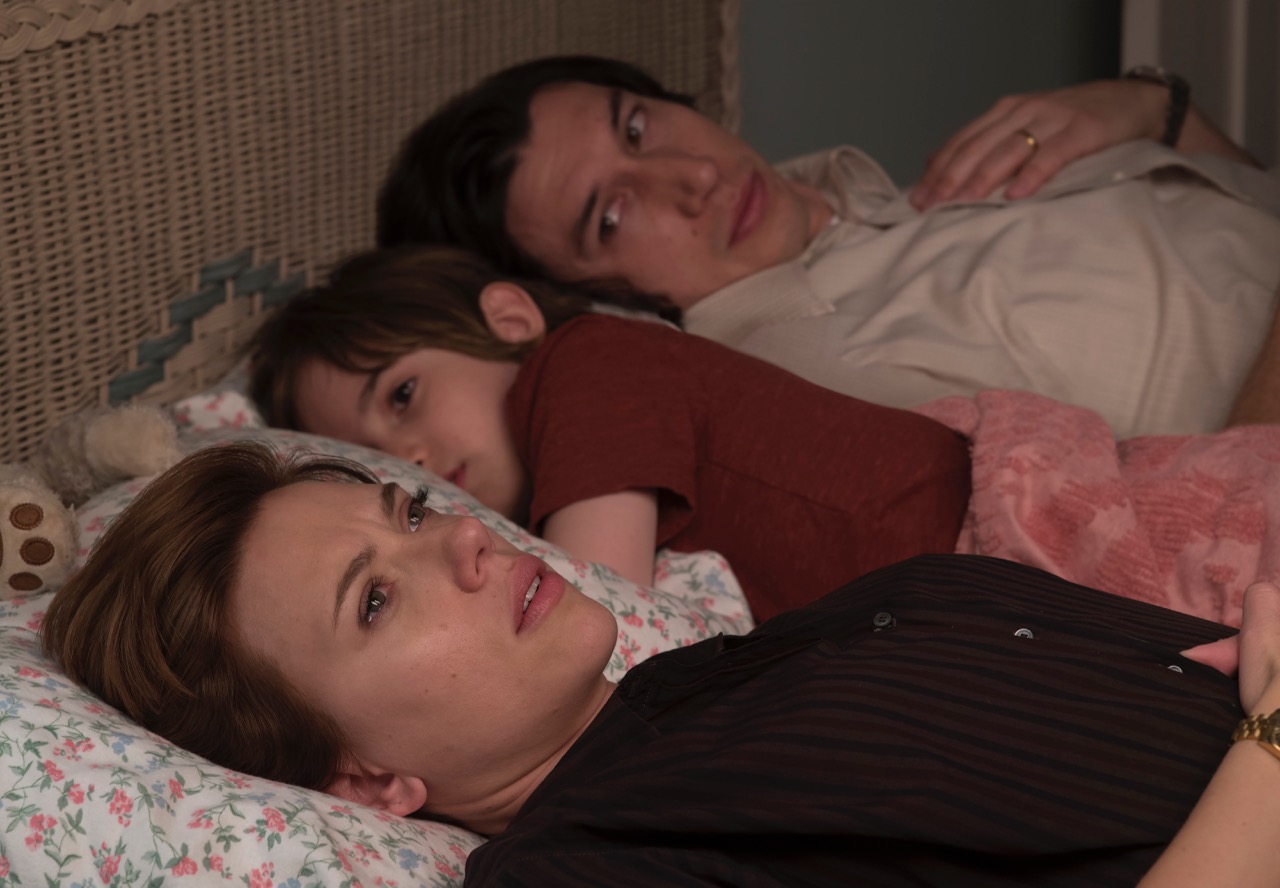
Scarlett Johansson as Nicole, Azhy Robertson as Henry, and Adam Driver as Charlie in Marriage Story. Image courtesy Netflix. Photo: Wilson Webb.
This isn’t what happens. Instead Nicole travels to Los Angeles for a television pilot, taking Henry with her. On the advice of a colleague on set, she meets with sleek, sharp-witted attorney Nora Fanshaw (Laura Dern), who establishes (false) intimacy with the ease of a confidence woman intuitively grasping the vulnerabilities of her mark. In one brilliant bit of cunning, Fanshaw kicks off her heels and sits on the couch next to Nicole, legs folded beneath her, like a BFF getting ready for a gossip sesh over a glass of rosé. (Fanshaw is rumored to have been modeled on famed Hollywood divorce attorney Laura Wasser, known to TMZ readers as the “disso queen”; Wasser represented Jennifer Jason Leigh when she first filed for divorce from Baumbach in 2010.) Fanshaw wins over Nicole by convincing her that divorce is an occasion to assume for herself some of the autonomy that Charlie has always taken for granted as his.
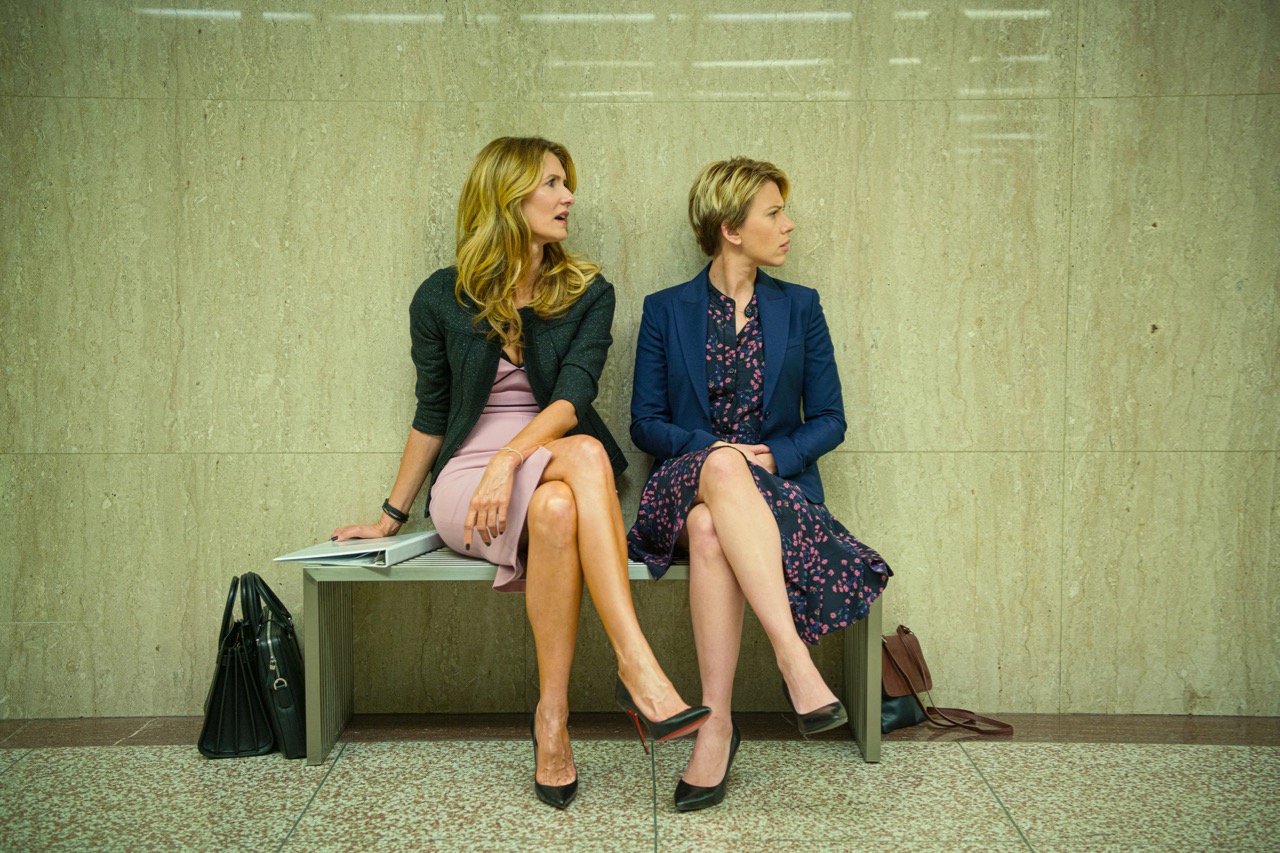
Scarlett Johansson as Nicole and Laura Dern as Nora Fanshaw in Marriage Story. Image courtesy Netflix. Photo: Wilson Webb.
With Nicole represented by an attorney, Charlie is—begrudgingly, he makes known—forced to find one too (he first retains a mild-mannered Alan Alda, and later, a bellicose Ray Liotta). From here the film largely pivots on a custody battle, ferrying between Nicole and Charlie, between their respective attorneys, between New York and LA—Baumbach consistently relying on the trite rivalry between the cities as a stand-in for the couple’s irreconcilable differences. For a while it is the attorneys who do all the dirty work; they emerge as pugnacious fantasy selves, near-caricatured avatars for the people who hired them. They are storytellers, narrating a version of the marriage that their clients most need to hear. If you have the resources, as do Charlie and Nicole—as, one imagines, did Baumbach and Leigh—you can pay people $850 an hour to do this for you. Marriage Story may want to convince us that it is about an ordinary separation, but it is not about ordinary people.
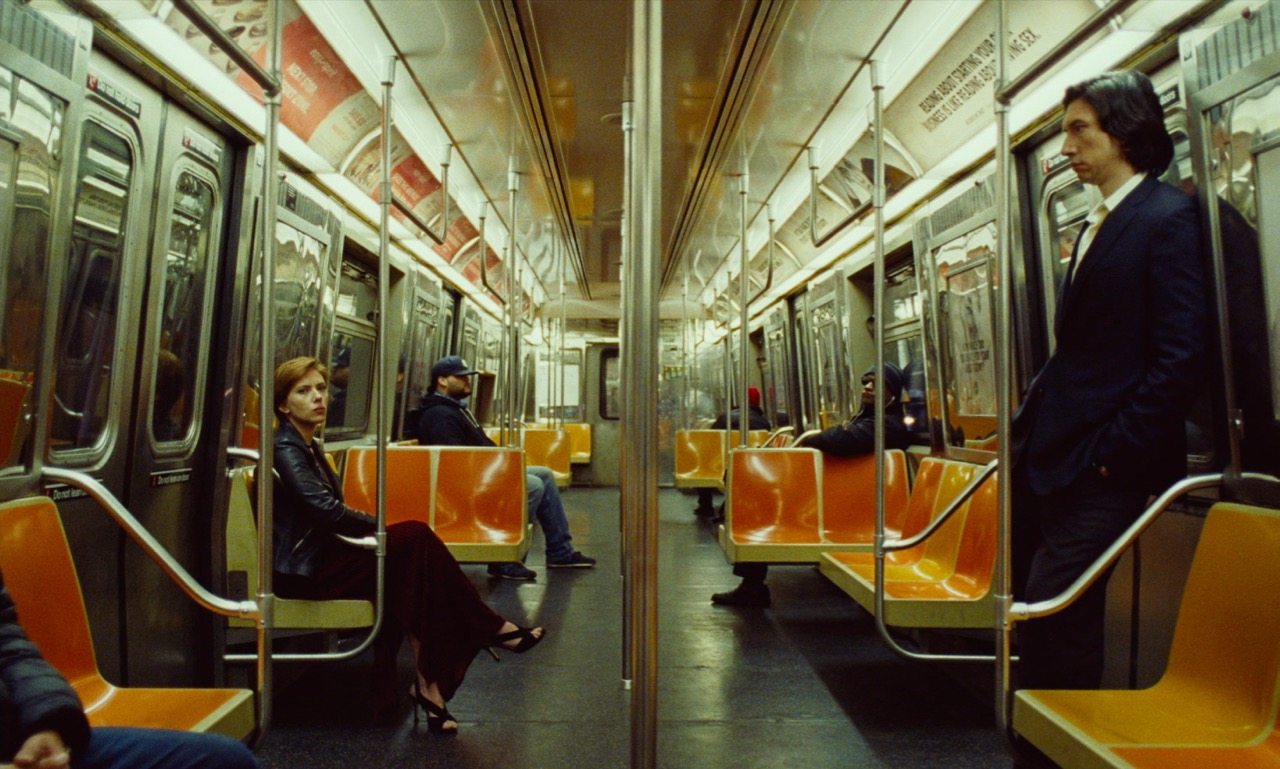
Scarlett Johansson as Nicole and Adam Driver as Charlie in Marriage Story. Image courtesy Netflix. Photo: Wilson Webb.
Divorce is a subject Baumbach has visited before. In his 2005 breakout film, The Squid and the Whale, Walt, a teenage Baumbach figure, and his preadolescent brother, Frank, act out their distress over the divorce of their literary-intellectual parents—who, unlike Nicole and Charlie, manage to separate without attorneys. But Squid, as with many of Baumbach’s films, falls in the realm of satirical comedy; Marriage Story has less of an edge. The movie is not without satire, but these elements are provided mostly by the supporting characters; at the core of the story is a drama. Much has already been made of Driver’s and Johansson’s performances—Rolling Stone, for example, hailed the film as the actors’ “best work”—but often I felt that I was watching “acting”—at times the gestures seemed exaggerated, the movements choreographed. This might have something to do with the leads’ star power, the way they always carry with them the residue of their past work, the way you can never forget who you’re watching. But Baumbach has suggested that some of the staginess of the performances may have been deliberate, citing his research into Ernst Lubitsch’s To Be or Not to Be (1942) and other screwball comedies in which the story hinges on two characters whose relationship extends both to work and love. Since the protagonists in Marriage Story are show people, he has allowed them more theatricality than would otherwise read as organic. This risked the naturalism he appears to have wanted to portray.
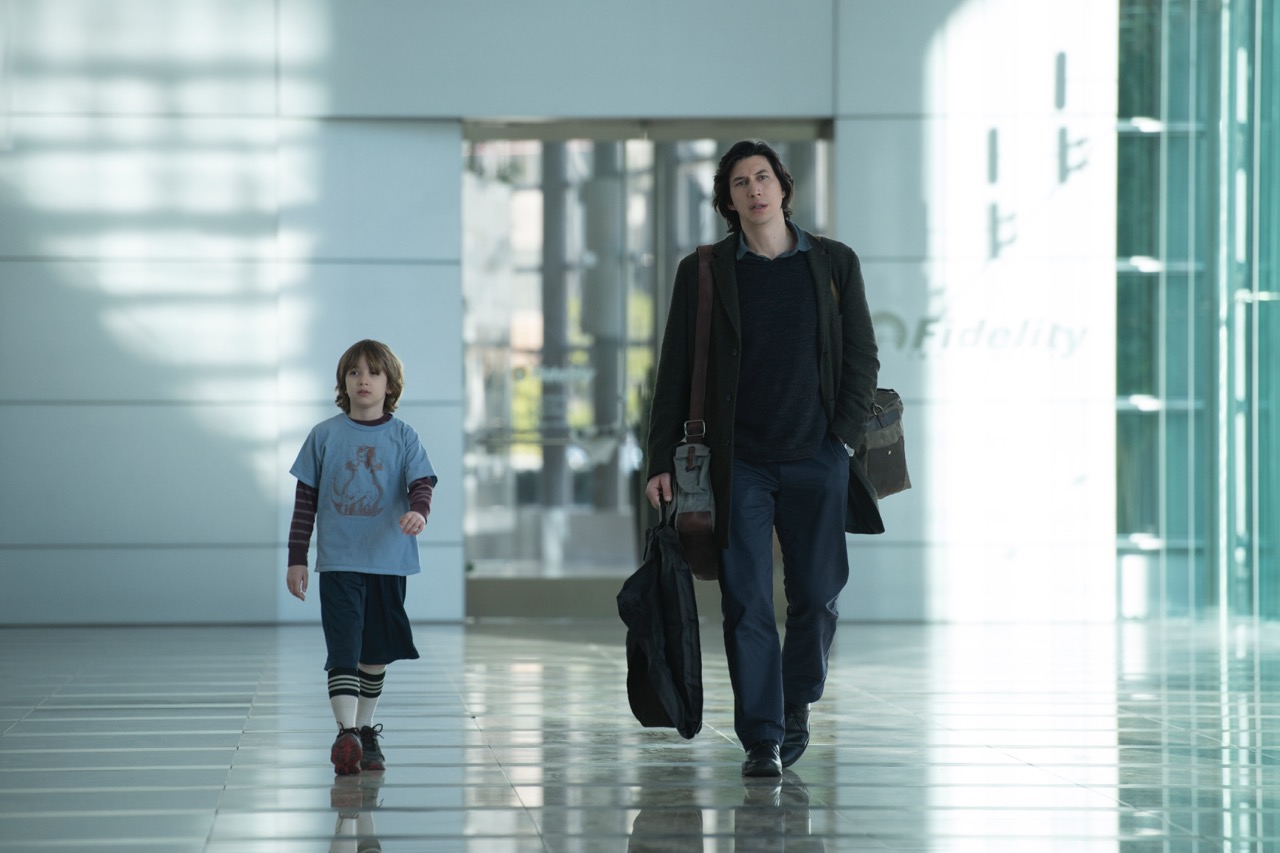
Azhy Robertson as Henry and Adam Driver as Charlie in Marriage Story. Image courtesy Netflix. Photo: Wilson Webb.
Marriage Story seems less descended from The Squid and the Whale and more aligned with Kramer vs. Kramer, the multiple-Oscar-winning family drama from 1979 starring Dustin Hoffman and Meryl Streep, which also portrays a custody battle. In Kramer, meek and dispirited housewife Joanna (Streep) leaves her career-fixated ad-executive husband, Ted (Hoffman), and their six-year-old son, Billy, in search of an identity that is neither mother nor wife; when she returns fifteen months later and tries to regain custody of her child, Ted refuses. The couple then battles it out in court. Kramer was a critical and box-office success, widely praised at the time for showing “both sides” of divorce. This is odd, at least from today’s vantage, because Mom is absent from about two-thirds of the film. Our sympathies are meant to align squarely with Dad, who is presented as both a victim of his wife and of family court’s bias against fathers.
Today Kramer scans easily as a backlash film, a warning about the perils of second-wave feminism, which was cresting in the 1970s; the author of the novel from which it was adapted has admitted as much, describing his book as a riposte to the feminist-sown “toxic rhetoric”—his words—that dismisses all men “a whole bunch of bad guys.” In Marriage Story, Nicole leaves for much the same reason as Joanna: she feels that she has been leading her husband’s life. It’s not Baumbach’s fault that forty years later this imbalance is still a reason marriages fall apart. But the way the film paints Nicole as vindictive, the way it makes Charlie a victim of her scheming—that is.
Sarah Resnick was born in Canada and lives in New York. Her short stories, essays, and reviews have appeared in n+1, Bookforum, BOMB, and frieze, as well as in the Pushcart Prize and Best American Essay anthologies. A former editor of Triple Canopy, she is a 2019 Canada Council for the Arts grantee.